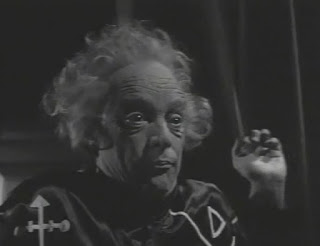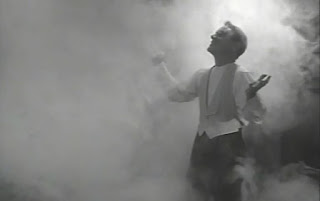Shall we talk about pitching?
For some odd reason, new writers seem obsessed with pitching... maybe because they are shy by nature and worry that they will have to become performers, or that they believe all they need to do is tell someone their amazing idea and they get to meet Spielberg and date underwear models and live in a mansion. Neither of those is really true, but the last one is pure fantasy. If you are a new writer you will not be pitching unwritten screenplays, you will be pitching to get someone to read one of the stack of screenplays you have already written. And even though statistically some writer somewhere might be dating an underwear model, that’s probably never going to be you. Sorry. We’re writers. We date normal people, if we’re lucky. There is some chance of meeting Spielberg, though.
The shy by nature thing probably isn’t as large of a problem as you may think, and we’ll get to that in a moment.
There are at least three types of pitches: Elevator, Pitching Takes, Pitching Projects. There may be more, but this is just a short article to accompany the film clip!
ELEVATOR PITCHES: That’s the common term, but basically it’s when you briefly pitch a written screenplay. You’ll do this at Great American Pitchfest or some film festival or screenwriting event. Thought they give you 5 minutes at GAPF and most other events, but that’s *total* time in front of some junior development executive - you won’t be pitching that whole time! You’ll need time to introduce yourself and for a little small talk. These events are really more about making connections than selling screenplays - so you want to get to know them and for them to get to know you, *then* pitch. And that only gives you a couple of minutes for your pitch. I’ve been on the panel at Raindance Film Festival’s pitching competition Live Ammunition! and they start out giving the contestants 5 minutes, then it goes down to 3, and sometimes it gets down to 1 minute. So think 2 minutes, you can always go longer if they give you more time. Basically - think of how you will pitch your screenplays if you are on an elevator and Steven Spielberg steps on after you. You have to get the story across before you get to his floor! That means you will be focusing on the *concept* of your story and not actually telling the story. The key elements in your pitch will be the concept, the protagonist, and the conflicts (emotional and physical). Basically an elevator pitch is like a logline... but with a few more sentences. The seed of idea, not whole tree and all of its branches! Never bore people with the details. Keep it focused! Big idea, person, problem.
PITCHING TAKES: I have a whole Script Tip on pitching your take - basically that’s what you do when a producer has read a couple of great screenplays you have written and think you would be perfect for an assignment, so they give you the Intellectual Property to look over and have you come back and pitch how you would adapt that property into a movie screenplay. I have a stack of books and magazine articles and even a bunch of old VHS tapes (old movies a producer owned the rights to and was interested in remaking) from these meetings... and each one I came back and pitched my take for. If you complain that so many movies are remakes and sequels and you just wish someone would give a new writer a break and buy something original, you haven’t yet realized that even remakes and sequels are written by *somebody*, and that somebody might be you. Pitching your take is all about how your would adapt the material - and your unique spin on the material or the way you would crack a difficult book or the theme within the material you want to explore. One of the magazine articles I was given (a producer at Universal whose Oscars were on display in the lobby of his office) was a xerox of a xerox of a xerox - and every single screenwriter in Hollywood had been given a copy to pitch. So they aren’t looking for a standard, “Well, I’d just put it in screenplay format and then clean it up” type of pitch - they are looking for what *you* as the writer will bring to this... what you will do that makes it unique and interesting. I was up for a sequel at once, and what they were looking for was an *additional* amazing high concept idea to graft onto the one from the first film. These pitches range from something similar to an elevator pitch where you just explain your angle, to a full telling of the story scene-by-scene. Everything depends on what the producer wants - just ask.
PITCHING PROJECTS: You have sold a screenplay or landed an assignment or two and you are now an in demand screenwriter... with a cool idea for a movie. Now, you could write the screenplay on spec and sell it to a producer, but your reps decide it would be more advantageous for the producer to hire you to write the screenplay. There are all kinds of reasons for this, including keeping you on the project for rewrites... because they have originally developed the screenplay with you. This is a long form pitch that goes scene-by-scene and can include everything from props to flip charts to images and “look books”. You are basically performing the story to the executives, and they will decide if they want to pay you to write this script or not... after they give you notes (Does it have to be on a ship? Why couldn’t the Titanic be a *space* ship?).
Though we already had a screenplay on the HOUSE remake, it was decided to do a longform pitch at each of the studios we had meetings with... and I’d never formally done this before at the studio level. I’d done longform pitches to producers I’d worked with in the past - in fact, I’d pitched several different versions of this story. But it’s different when you’re pitching to a studio VP for a producer. More pressure, less casual. One of the things I did was use a Hot Wheels car as a prop in part of the pitch, and at the end of the pitch I would zoom the car across the conference table to the executive. If he caught the car before it went off the end of the table, I figured he or she was interested. Not many cars hit the floor. But this was kind of a frightening situation for me because I’m not a performer, I’m a writer - and these pitches depend to some degree on the performance.
You may think that pitching your project is great because you will get paid to write it, but the fact is - you pretty much have it already written (at least a very detailed outline) to pitch it in the first place. Much of the really hard creative work usually has to be done first. I really prefer to spec a script than pitch it and hope someone says yes. That way, the script goes all over town and I just stay home and wait by the phone... instead of me driving all over town having to do a bunch of performances in hopes someone says yes. I kind of hate pitching.
Wait, Bill, you said we shouldn’t be worried about performance when pitching... and now you say you hate pitching? Both can be true, you know. I hate longform pitching because it requires some performance skills, but chances are you won’t have to worry about longform pitching for a while (if at all). You will mostly be pitching scripts that you have already written in order to interest someone in reading them, or pitching your take on some project (which is usually short and to the point and not doing a one man show in front of a bunch of bored studio suits). Those are more about the concept than the performance. The Live Ammunition Pitch Competition at Raindance is a great example of how performance doesn’t matter that much. The panel are a bunch of top Executives from British film companies - BBC, Channel 4, and others. Here’s a picture of me sitting next to the producer of THE CRYING GAME on the panel.
There are usually 75-100 people pitching at the event, and many are nervous writers who screw up their pitches or get stage fright or whatever... they are far from perfect. But they may have an amazing idea or a character we’ve never seen on film before, and that’s what is interesting. The “judges” are people looking for a great story, not looking for the actor to star in that great story. One year, a writer actually got an actor friend to pitch their screenplay. This was an amazing performance by a talented actor... and it wasn’t even in our top ten! Why? The story was bland - something that no one would stand in line for an hour in order to pay to see. The winner that night was a writer who stumbled through their pitch and gave a *terrible* performance - but had a great story! And that’s really what matters - the great story. So don’t worry about performance, worry about have a great *concept* - something that is both unique and universal. Worry about have a great star role, that will attract an A-lister who can open the movie. Worry about having an idea that can generate a bunch of big, juicy, emotional scenes... and will also generate big spectacle scenes that can be used in the trailer along with that amazing concept to sell tickets. Don’t be afraid of the performance side of pitching - just make sure you have a great story to pitch! When you hear 75-100 pitches in a single night at something like Raindance’s Live Ammunition, you realize how many bland ideas are out there.
And now the Film Courage clip...
My First Pitch:
Good luck, and keep writing!
- Bill
BRAND NEW!

405 Pages!
*** SELLING BLUE BOOK *** - For Kindle!
Should really be called the BUSINESS BLUE BOOK because it covers almost everything you will need to know for your screenwriting career: from thinking like a producer and learning to speak their language, to query letters and finding a manager or agent, to making connections (at home and in Hollywood) and networking, to the different kinds of meetings you are will have at Studios, to the difference between a producer and a studio, to landing an assignment at that meeting and what is required of you when you are working under contract, to contracts and options and lawyers and... when to run from a deal! Information you can use *now* to move your career forward! It's all here in the Biggest Blue Book yet!
Print version was 48 pages, Kindle version is over 400 pages!Only $4.99 - and no postage!
USA Folks Click Here.
UK Folks Click Here.
German Folks Click Here.
French Folks Click Here.
Espania Folks Click Here.
Canadian Folks Click Here.
Other countries check your Amazon websites... it's there!
Seriously - TEN TIMES larger than the paper version (still on sale on my website)! That's just crazy!
Thank you to everyone!
Bill































